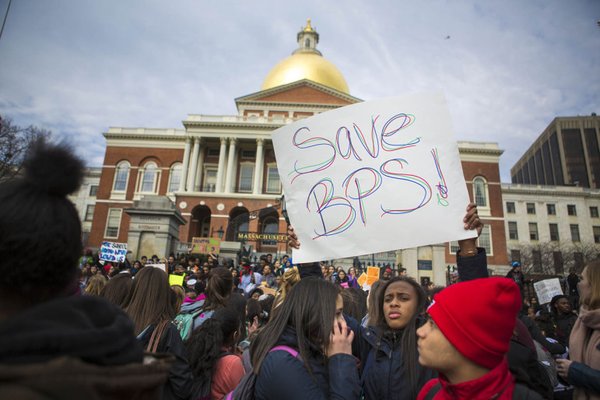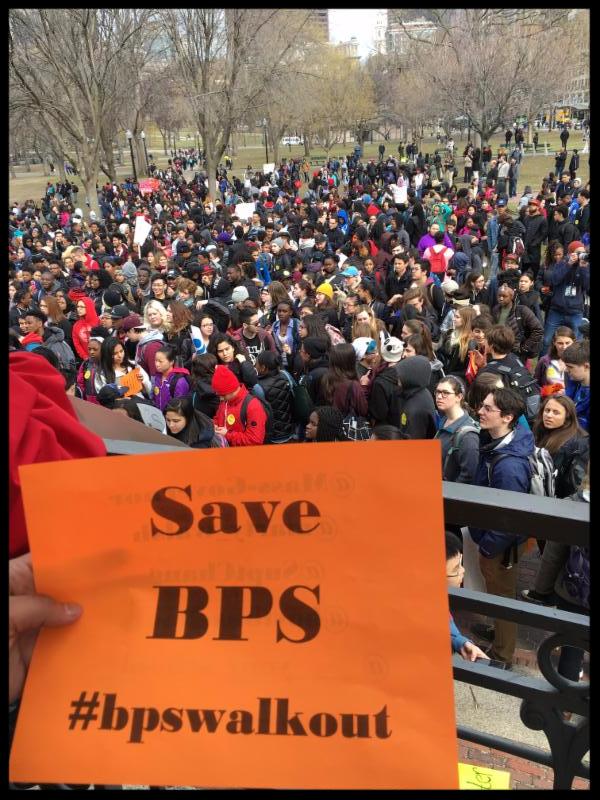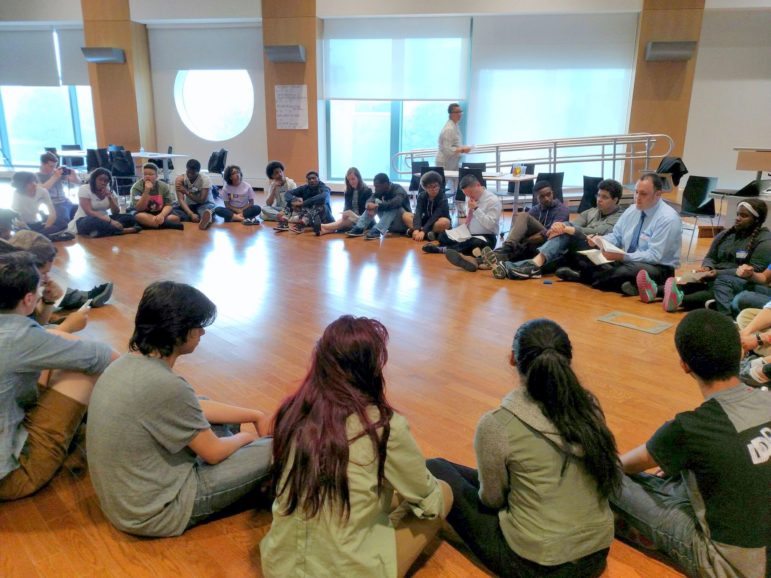
Youth on Board
About 3,500 Boston high school students walked out of class in March to protest funding cuts that would have closed some public schools, cut extracurricular activities and reduced the number of Advanced Placement classes. Students organized the walkouts, but the Boston Student Advisory Council, a project of Youth on Board, has helped students develop a voice on issues that matter to them.
Young people in Boston have created what may be a $5 million impact in their city. Public school students came together as a youth council, with involvement and organizing support from Youth on Board, a 22-year-old nonprofit working to make the voices of Boston youth heard.
After they organized two school walkouts and took over a budget meeting, Mayor Marty Walsh announced the addition of $4.7 million in school funding.
“This was totally student-led,” said Rachel Gunther, associate director of Youth on Board. Students used social media to organize protests.
The action came in response to the mayor’s announcement earlier this year of a $50 million reduction in the budget for Boston Public Schools. Some schools would be closed, teachers laid off and extra-curricular activities cut.
Fania Joseph is a member of the Boston Student Advisory Council and a rising junior at Boston Community Leadership Academy.
“Kids from different high schools came together to organize,” she said. “It was really amazing.”
Jahi Spaloss, a senior at Boston Green Academy, was in a cell phone group chat at 3 a.m. planning the first walkout in March.
Students were angry that budget cuts would have reduced AP classes and activities such as sports and clubs, he said.

“At the end of the day, they’re taking away our opportunities, they’re taking away our education, they’re taking away our future, and that’s what’s most important,” Spaloss told the Nation magazine.
Of the students in the district, 41 percent are Hispanic and 35 percent are African-American, according to district figures.
“So really, where’s the equality when they’re cutting off our opportunities?” Spaloss said.
The students expected only a few hundred kids to walk out of school. But 3,500 students took part in two separate student-organized protests, according to news reports.
Youth on Board provided a support system, but the young people themselves were at the center of decision-making, Gunther said.
“Young people deserve a say in all the elements of decision-making that affects their lives,” Gunther said.
Students know better than anyone what the impact of the budget cuts would be, she said. She said the budget is still down by $30 million.
When youth organize around issues of concern to them, they gain a host of skills, Gunther said, including public speaking, understanding budgets and relationship-building with decision-makers. They also gain a sense of empowerment that comes with knowing that you’ve made a difference, she said.
Young people have had an impact in two other areas this spring, she said.
After the school district developed a new code of conduct, students wanted an app that would explain it in plain English, Gunther said.
“Students came up with this idea — instead of having a flyer, have an app,” she said.
In easy-to-understand language, the new app explains students’ rights and educates everyone about the code of conduct. Not everyone knows all the details of the new code, Gunther said.

Youth on Board
Young people in Boston meet with Boston Public Schools Superintendent Tommy Chang to discuss significant funding cuts to the schools. Youth participation in issues that affect them has been nurtured by Boston nonprofit Youth on Board.
Another function of the app is that “it holds the district accountable to its policies,” she said, and it lets people know the process for filing a grievance.
In addition, Boston youth organizations, including the Boston Student Advisory Council, pushed to extend the hours that young people could use their public transit youth passes.
Originally passes could be used to get to and from school, but now they can also be used in the afternoon and evening.
Students are continuing to meet around the issue of school funding, Joseph said.
The leadership program at her school has been cut, she said, and teachers are leaving.
“Why are we losing all the good teachers?” she asked.

























